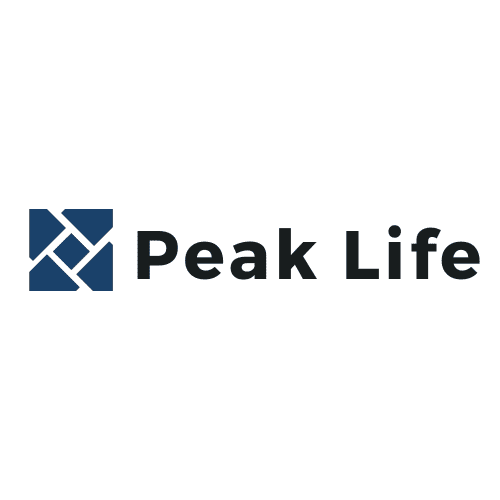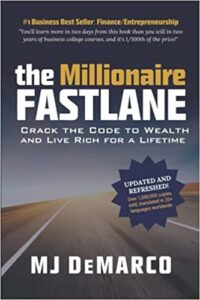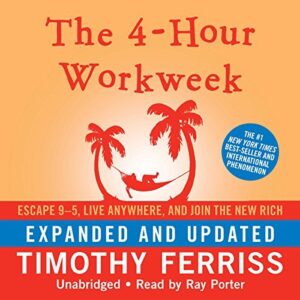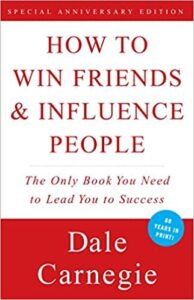Becoming Flawesome by Kristina Mand-Lakhiani – Book Summary
This post contains affiliate links that help supports this blog and cost you the exact same. If you do not wish to use affiliate links, then feel free to google the product.
Hello everyone!
In this post, we dive into an amazing book, Becoming Flawesome, that gives us a real, down-to-earth look at how we can change ourselves for the better. Written by a top-notch author with actual life experience, this book guides us through the ins and outs of knowing ourselves, accepting who we are, learning to forgive, being resilient, and, most importantly, finding our own Flawesome self.
And the best part to #BECOMINGFLAWESOME?
It’s all written with a blend of wisdom and approachability that makes the whole idea of personal change feel less scary and more like something we can actually do.
So, let’s buckle up and get ready for a journey of self-discovery that will help us grow and develop in ways we never thought possible.
About the Author
Written by renowned author, speaker, and entrepreneur Kristina Mand-Lakhiani, this transformative guide takes readers on an enlightening journey towards self-discovery and personal growth. Leveraging years of coaching experience and a wealth of personal insights, the author deftly navigates the complexities of the human psyche, offering practical, actionable advice for those yearning for change.

A Brief Summary of Becoming Flawesome
Becoming Flawesome is a book that asks readers to look inward and honestly evaluate their lives.
It’s not about creating a “better you”, but about finding the courage to love and embrace the real you – warts, flaws, and all. It calls for deeper awareness, acceptance, forgiveness, resilience, purpose, kindness, courage, and the magic of living “flawesomely”.
With humor, wit, and no shortage of tough love, the author takes readers through a series of poignant, introspective moments, ultimately leading to a personal transformation that’s as impactful as it is lasting.
Key Takeaways
Key takeaways from this enlightening guide are plentiful, but three significant insights include:
- Transformation begins from a position of strength and self-love, not from a need to “fix” oneself.
- One must actively and consciously choose the kind of life they wish to live.
- True happiness is achieved through personal acceptance, finding purpose, and embracing our imperfections.
Implementation in My Life
From this book, I’m embracing a number of changes, including practicing radical self-acceptance, actively choosing my life’s direction, and being unapologetically kind and honest.
I’m challenging my comfort zone, prioritizing happiness, and questioning what triggers my irritation to gain a deeper understanding of myself.
Furthermore, I’ll be letting go of quick fixes and working on long-term strategies for dealing with life’s challenges.
Top Three Quotes
- “You are not happy because everything is perfect. Everything is perfect because you are happy.” – Srikumar Rao.
- “The sooner you admit your truth and face your fears, the more pathways you leave for yourself to choose from and the more temperate your reaction will be.”
- “Nothing is so exhausting as indecision, and nothing is so futile.” – Bertrand Russell.
Section Summaries
Introduction:
Setting the stage for transformation, the introduction underscores the point that we don’t need to be “fixed,” but instead, we should focus on growing from a position of strength and self-love.
The book begins with the assertion that transformation is not a process of fixing something broken. Instead, it is a path to growth and self-improvement, starting from a position of strength. It establishes the tone of the book as one of introspection, self-discovery, and love for oneself.
It encourages readers to take an honest look at themselves and their lives, to reveal their authentic selves, and to accept and love themselves as they are.
Part I. The Path Back to You
In the first part of Kristina Mand-Lakhiani’s Becoming Flawesome, she highlights the journey of self-discovery, self-acceptance, and the fine line between striving for success and achieving happiness.
Mand-Lakhiani explores the concept of self-love and self-acceptance, comparing it to the honeymoon phase in a romantic relationship. As we come face-to-face with the gap between our real selves and our ideal selves, we often experience disillusionment and disappointment. She asserts that true transformation and self-improvement can only occur once we accept our current selves, equating this process to embarking on a hike with a map; knowing the destination isn’t enough, one must also be aware of the starting point.
Another profound insight Mand-Lakhiani shares concerns the societal obsession with success. Many of us prioritize success over happiness, although it’s the latter that’s our ultimate goal. This is a misguided approach because evidence suggests that success doesn’t guarantee happiness. Moreover, our perceptions and beliefs can shape our reality, often confirming our biases and blinding us to contradicting evidence.
The book’s key takeaway is the recognition that individuals often strive for success in hopes of feeling worthy and lovable, not realizing they’re already both. People forget that happiness is a personal journey, unique to each person, rather than a one-size-fits-all concept. Mand-Lakhiani emphasizes the power of beliefs as precursors to behavior; for instance, if someone believes success requires sacrifice, they’ll manifest situations demanding it.
In conclusion, Part 1 of “Becoming Flawesome” centers on discovering and accepting oneself, understanding the difference between pursuing success and seeking happiness, and recognizing the power of personal beliefs. Mand-Lakhiani encourages us to embrace authenticity, shedding the burden of perfectionism for a more fulfilling, peaceful life.
The journey to becoming ‘flawesome’ starts with self-acceptance, acknowledging that you’re already worthy and lovable, and understanding that your happiness is unique to you and not tied to conventional success.
Part II. Finding Your Own Truth
In the second part of “Becoming Flawesome: Notes on what it takes to live authentically,” Kristina Mand-Lakhiani delves into the intricacies of vulnerability and its relation to authenticity, and how our perception of the world shapes our reality.
Mand-Lakhiani starts by reflecting on the evolution of language and how our understanding of words changes over time, often inflating their meaning. Focusing on the concept of vulnerability, she offers a nuanced perspective. It’s not about revealing deep secrets or public displays of emotion. Instead, vulnerability is the willingness to act when there are no guarantees, requiring a blend of courage and uncertainty. Mand-Lakhiani warns against conflating vulnerability with authenticity, as one can be vulnerable but remain inauthentic, lost in delusions and unproductive coping strategies.
Further, the author presents an intriguing proposition about our interactions with the world: it treats us how we’ve trained it to do so. This tough reality implies that our beliefs about ourselves and how we project them significantly influence our interactions and experiences.
The key takeaway from this part is an understanding of vulnerability and its relation to authenticity. True vulnerability necessitates courage and acceptance of uncertainty. Moreover, self-acceptance stands out as the most critical factor in how the world perceives us. The fear of rejection dissipates when we fully accept ourselves.
In conclusion, Part II of “Becoming Flawesome” demystifies the concept of vulnerability, urging readers not to mistake it for authenticity. Mand-Lakhiani emphasizes that our perceptions and self-beliefs can shape our reality, underscoring the importance of self-acceptance.
The journey to authenticity requires an understanding of vulnerability and the courage to face uncertainty, with the ultimate acceptance coming from within.
Part III. Switching Off Autopilot
In this section, Mand-Lakhiani underscores the power of well-defined and prioritized goals. She urges readers to spend time identifying their goals, selecting the one with the most significant potential impact, and dedicating an entire month to it. She also stresses the influence of our habits in shaping our lives and explains the need for a deep-rooted awareness to make lasting changes.
Kristina also discusses the unique nature of our individual lives, even if we make similar big decisions, stating that our quality of life is determined by our daily choices, thoughts, and feelings. Furthermore, she emphasizes that our motivation’s depth and its connection to our actions can determine how effectively we can sustain change.
The most crucial takeaway from this section is the role of awareness both as a skill and a goal. Mand-Lakhiani posits that habits, which often run our lives on autopilot, form our character and shape our lives. And each person’s solution for personal growth may look different and evolve over time. Therefore, she emphasizes the importance of starting with self-awareness before anything else.
In conclusion, Part III of “Becoming Flawesome” is a call to switch off the autopilot mode that most of us operate on and embrace conscious living. By understanding our habits, prioritizing our goals, and fostering self-awareness, we can shape our lives more intentionally. As Mand-Lakhiani puts it, the right answers will evolve as we evolve, and the first step in this journey is fostering a deep awareness of ourselves and our habits.
Part IV. The Art of Imperfection
Part IV of Becoming Flawesome delves into the concept of “The Art of Imperfection.” The section discusses the numerous roles we play in life, each with its unique persona, but all emerging from the same individual. She notes that these different masks, or personas, serve to highlight certain aspects of our character depending on the context.
She emphasizes that not adapting to different situations by switching these masks can be problematic, leading to discomfort and antisocial behaviors. Yet, even as we juggle different roles, some roles may conflict with others, requiring us to decide which takes precedence.
Moreover, Mand-Lakhiani points out that we’re often instructed on how not to feel, leading to a struggle with understanding our authentic emotions. She suggests visualizing emotions as objects to better manage them and reminds readers that emotions aren’t inherently good or bad, but signals that something requires our attention.
The section emphasizes the importance of recognizing our various masks and knowing when to use them without losing sight of our true selves underneath. Also, it talks about Brene Brown’s three essential ingredients for forming strong connections: believing in one’s lovability, embracing imperfections, and displaying vulnerability.
Mand-Lakhiani then outlines a seven-step formula for working with painful emotions, encouraging the acceptance of all emotions. She argues that obstructing the flow of our emotions only results in them being lodged in our subconscious, not disappearing.
Finally, Mand-Lakhiani argues against the notion of sacrificing personal happiness for others’ sake, stressing that our loved ones require our happiness, not our sacrifice. Sacrificing our happiness often leads to dissatisfaction, whether in our jobs, relationships, or personal life.
In summary, “The Art of Imperfection” discusses the balancing act of wearing different masks or roles in life, the importance of authenticity, embracing emotions, and rejecting self-sacrifice for personal happiness. Mand-Lakhiani underlines that true acceptance comes when we learn to take off our masks, and the best gift to the world is our happiness.
Part V. Honesty
Part V examines the role of truthfulness in our lives. Kristina Mand-Lakhiani asserts that honesty initiates transformative change, but it must be exercised with kindness and courage.
She highlights that children start lying as soon as they learn to talk, and lying is seen as a developmental milestone due to the cognitive ability it necessitates. However, she emphasizes the need for honing honesty as it can be a double-edged sword if not used appropriately.
Mand-Lakhiani warns against the literal interpretation of the expression “fake it till you make it” and explains the difference between trying your best and being self-righteous, courageously taking action and overpromising, and several other contrasting scenarios.
The section posits that our brain is designed to protect us from harm, which includes emotional pain like rejection, causing us to create a safe reality via dishonesty. Furthermore, she explains the difference between absolute truths, which hold true universally, and relative truths, which vary from person to person.
To achieve profound change in life, she says, one needs to delve deeper beyond facades. Mand-Lakhiani offers Dmitry’s rules for honest communication: clarity, acceptance, nonviolence, avoidance of past stories, sincerity, and personal practice.
She underscores the importance of acceptance of others as they are and the significant transformation it brings about in relationships. Moreover, she differentiates between a point of view and judgment, indicating that empathy only exists when we’ve personally experienced the emotions in question.
In summary, the section “Honesty” emphasizes the pivotal role of truthfulness in personal transformation. It highlights the need for understanding and accepting relative truths, valuing honest communication, and nurturing empathy. Mand-Lakhiani encourages readers to embrace others as they are and to critically evaluate the ‘stories’ they tell themselves.
Part VI. Kindness
Part VI explores the relationship between kindness, honesty, and personal growth.
Kristina Mand-Lakhiani warns that kindness without honesty can devolve into flattery, leading to manipulation. While such insincere acts might be pleasing initially, they are inherently unsettling. She criticizes the notion that adversity inherently leads to personal betterment, arguing that it often results in a downward spiral of disappointment, trauma, and cynicism rather than growth.
The key takeaways from this section include the recognition that there is no inherent guarantee of growth from painful experiences or hitting rock bottom. She highlights that those who are hurt often end up hurting others, implying that pain can cause a cycle of harmful behaviors. Transformation, she asserts, starts with self-kindness, which allows honesty and self-acceptance to flourish.
Mand-Lakhiani suggests implementing kindness in one’s daily life, such as giving honest and sincere compliments to strangers. She emphasizes that such acts can catalyze personal growth and help break the cycle of pain.
In summary, the “Kindness” section emphasizes the necessity of honesty in kindness and challenges the belief that adversity invariably leads to growth. The author urges readers to extend kindness to themselves and others as a way to promote transformation and overcome cycles of harm.
Part VII. Courage
Part VII, titled “Courage,” in “Becoming Flawesome” by Kristina Mand-Lakhiani, dives into the significance of courage and its role in initiating life-altering changes.
Kristina explains that people often cling to the familiar, despite longing for something different, out of a love for certainty. Stress, she clarifies, is a biological response preparing the body for potential threats. She also poses challenging questions that one needs to answer for substantial life changes, touching on the concept of potentially hurting loved ones with our decisions.
The primary takeaways from this section are that fear often stems more from a concern about losing what we already have rather than anxiety about achieving new things. The size of our comfort zone directly impacts our potential for success; a larger comfort zone equates to a greater capacity for achievement. Even if there are times of failure and disappointment, these experiences form part of the transformation journey. Moreover, she underlines the difficulty of choosing between personal desires and the expectations of loved ones.
To implement these ideas, Mand-Lakhiani suggests ensuring one is not paralyzed by indecision and losing oneself as a result. She advises shortening the time between thinking, deciding, and acting. She also recommends reflecting on the life you envision and considering what you might need to leave behind to achieve it, along with the price to be paid. She further recommends contemplating certain questions when facing tough decisions that might hurt loved ones.
In summary, the “Courage” section emphasizes the importance of bravery in life changes. It discusses how fear, comfort zones, and the potential pain inflicted on loved ones can impact decisions, urging readers to confront these issues to embark on their journey of transformation.
Part VIII. Living Flawesomely:
Part VIII concludes the guide by highlighting the importance of individual happiness and self-acceptance in creating a positive impact in the world.
Mand-Lakhiani emphasizes that personal happiness is a prerequisite to helping others, and that contributions to the world should arise from a genuine desire to alleviate others’ suffering rather than a sense of guilt or obligation. She clarifies the difference between momentarily altering emotions through instant gratification techniques and manipulating longer-term states, such as happiness, which require a sustained approach.
Key takeaways from this section include the notion that when individuals are content and at peace, they can offer the world their best selves. Mand-Lakhiani rejects the idea that happiness and productivity are mutually exclusive and encourages readers to embrace both while enjoying the journey. She suggests daringly dreaming big and then letting go of these dreams, learning to appreciate reality. The author asserts that self-acceptance is essential for accepting others, and problems should be approached with calm and consideration.
The changes the author suggests implementing involve creating long-term strategies to address problems instead of opting for quick fixes, allowing minor inconveniences to happen, and being brutally honest with oneself. Additionally, when feeling triggered or irritated, individuals should reflect on the personal issues driving these reactions.
In the concluding remarks, Mand-Lakhiani notes that no one-size-fits-all roadmap to success, happiness, or a perfect life exists, and what works in one scenario may not work in another. She comments on the beautiful coexistence of life’s many contradictions and cautions against the futility of trying to make uncertain things certain.
In summary, “Living Flawesomely” stresses the importance of happiness, self-acceptance, peace, and brutal self-honesty in a fulfilling life. It underscores the complexity and contradictions inherent in life, suggesting that they should be embraced rather than simplified or avoided.
Conclusion
Reading Becoming Flawesome: The Key To Living An Imperfectly Authentic Life is a journey, one that is full of laughter, tears, and profound revelations. This is a book that does not shy away from the hard truths, the deep questions, or the tough decisions. It’s a book about living life on your terms, in all your perfect imperfections. It’s a book about being flawesomely you!
Other Recommended Books
- “The Power of Now: A Guide to Spiritual Enlightenment” by Eckhart Tolle: This profound book offers practical advice on how to live fully in the present moment and find peace in everyday life, drawing upon concepts from various spiritual traditions.
- “Daring Greatly: How the Courage to Be Vulnerable Transforms the Way We Live, Love, Parent, and Lead” by Brené Brown: Brené Brown, a renowned researcher and storyteller, explores the power of vulnerability in transforming our lives. She emphasizes that vulnerability is not a weakness, but a strength that leads to greater courage, connection, and empathy.
- “Atomic Habits: An Easy & Proven Way to Build Good Habits & Break Bad Ones” by James Clear: In this book, James Clear discusses how our daily habits fundamentally influence our lives. He provides practical strategies on how to form good habits, break bad ones, and master the tiny behaviors that lead to remarkable results.








